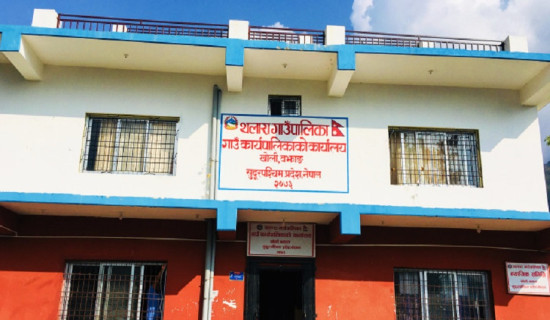- Wednesday, 16 July 2025
Ride-sharing service gets legal mandate in Gandaki Province
By Santosh Subedi,Kaski, May 16: In a landmark decision, the Gandaki Province government has formally granted legal recognition to ride-sharing services. The move follows the approval of a regulatory framework during the provincial Cabinet meeting held on Tuesday.
Minister for Economic Affairs and the Provincial government spokesperson Dr. Tanka Raj Gurung said that ride-sharing companies operating within the province will now be required to meet specified standards and obtain official permission to operate.
The regulation, formulated in accordance with the current fiscal year’s Financial Bill, marks the completion of a long-delayed process that had previously been halted amid opposition from traditional transport operators.
Earlier, transport entrepreneurs in the region had staged protests demanding that ride-sharing be legalised, citing threats to their businesses. Despite resistance, the provincial government has moved forward, emphasising the need to modernise and regulate emerging transportation models.
Under the new rules, only companies—rather than individuals—will be permitted to register and operate ride-sharing or self-drive services. All vehicles operated under these platforms must also be registered with the Department of Transport Management, which will oversee their compliance and monitoring through the respective apps.
In terms of financial obligations, companies are now subject to a structured fee schedule. For vehicle registration, two-wheelers will be charged Rs. 5,000, while four-wheelers will incur a fee of Rs. 20,000. However, a 25 per cent discount will apply to vehicles already registered as public transport.
Companies seeking operational permits either through company of ridesharing and self-ride service must pay Rs. 25,000 for two-wheelers, Rs. 50,000 for four-wheelers, and Rs. 70,000 for offering both services. Permit renewal fees will be 50 per cent of the initial amount annually—Rs. 12,500 for two-wheelers, Rs. 25,000 for four-wheelers, and Rs. 35,000 for combined services.
Once the regulation is published in the official Gazette, it will come into effect immediately. The newly legalised ride-sharing model also outlines a revenue-sharing mechanism: for every Rs. 100 fare paid by a passenger, Rs. 87 will go to the rider (driver), Rs. 12 to the affiliated company, and Rs. 1 to the provincial government.
The policy aims to bring ride-sharing within a structured legal framework, ensuring safety, transparency, and accountability for all stakeholders involved in the digital transportation ecosystem.

















